US, European Powers Discuss How To Approach Iran's Nuclear Program: FT
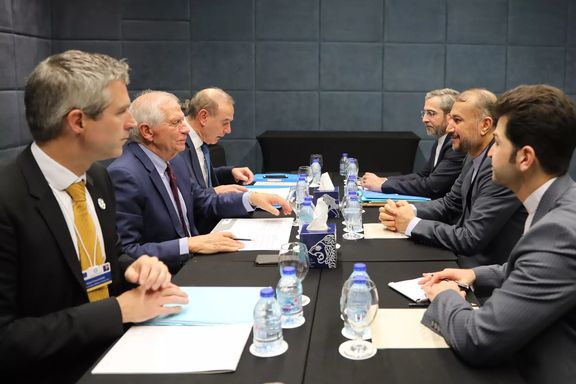
The United States and European powers have resumed discussions on how to interact with Iran over its nuclear program, according to the Financial Times.

The United States and European powers have resumed discussions on how to interact with Iran over its nuclear program, according to the Financial Times.
Iran has enriched uranium to such levels that US officials have warned in recent months Tehran could produce enough fissile material for a nuclear weapon in less than two weeks.
“There is recognition that we need an active diplomatic plan to tackle Iran’s nuclear program, rather than allowing it to drift,” a western diplomat told the Financial Times.
The US, France, Germany and the UK halted diplomatic efforts to resolve the crisis last September after Tehran angered rejected a draft proposal by the European Union to revive the 2015 nuclear agreement.
According to the Financial Times, there have been contacts with Iranian officials in recent months, including a meeting between officials from the so-called E3 - France, Germany, and the UK - and Ali Bagheri Kani, Iran's nuclear negotiator.
Diplomats and analysts say Rob Malley, the US Iran envoy, has met several times with Iran’s UN ambassador in New York Amir Saeid Iravani.
A person close to the administration said the talks focused mainly on the possibility of an exchange of prisoners with Iran, which holds at least three US citizens.
Last week, Tehran agreed to exchange prisoners with Belgium and released two Austrians.
IAEA detected particles enriched to almost weapons grade at the Fordow nuclear plant in January, indicating Iran enriched at least some uranium to 84% purity.

US Secretary of State Antony Blinken will visit Saudi Arabia next week, amid Riyadh’s shifting foreign policy drawing closer to Beijing and a détente with Iran.
While the US was making the announcement, Saudi Arabia’s foreign minister Faisal bin Farhan met with his Iranian counterpart Hossein Amir-Abdollahian in South Africa during the BRICS summit and pledged to visit Tehran soon.
Blinken’s visit will be the second high-level mission in one month to mend fences with the region’s ascending power and the dealmaker in OPEC+. In May, national security adviser Jake Sullivan also visited the kingdom.
Although no breakthroughs are expected, Reuters quoted analysts as saying that the aims of the trip include to regain some sway with Riyadh over oil prices, to fend off Chinese and Russian influence, and to nurture hopes for an eventual Saudi-Israeli normalization.
In a brief statement, the State Department said Blinken would visit Tuesday to Thursday to discuss economic and security cooperation as well as for a US-Gulf Cooperation Council meeting and a conference on combating Islamic State militants.
But the Saudi decision in March to re-establish diplomatic relations with Iran after seven years of bitter animosity, signaled a serious shift in Riyadh’s foreign policy especially that the deal was forged with Chinese mediation in Beijing.
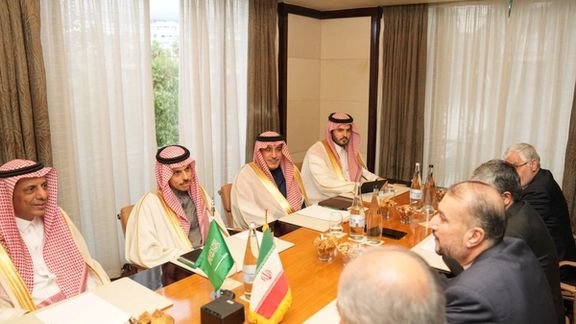
Other regional developments followed that further demonstrated a shift by Saudi Arabia, which feels it is in a position to act independently. Riyadh helped re-habilitate Syria’s dictator Bashar al-Assad among Arab nations by inviting him to an Arab summit in May. Assad is a close ally of Iran.
Perhaps equally important was an announcement on May 31 by the United Arab Emirates, a close Saudi ally, that it has withdrawn from the US-led maritime security coalition in the region.
"As a result of our ongoing evaluation of effective security cooperation with all partners, two months ago, the UAE withdrew its participation in the Combined Maritime Forces," the Ministry of Foreign Affairs said in a statement.
The Combined Maritime Forces is a 34-nation task force, headquartered at the US naval base in Bahrain, working on security, counterterrorism and counter-piracy in the Red Sea and Persian Gulf areas. But in fact, the US and Israel were trying to forge a regional coalition to contain Iran, including an air defense network.
President Joe Biden seriously annoyed Riyadh both before and after getting elected. In 2019 he said that he would treat Saudi Arabia like "the pariah that they are" and, soon after taking office in 2021, releasing a US intelligence assessment that Saudi Crown Prince Mohammed bin Salman approved the operation to capture or kill dissident Saudi figure Jamal Khashoggi.
But Riyadh began losing faith in its long-standing alliance with Washington, when even former President Donald Trump refused to retaliate against a major Iranian drone and missile attack on Saudi oil installations in September 2019.
"They (the Saudis) wanted to see rubble bounce in Tehran after Abqaiq," Reuters quoted David Des Roches of the US National Defense University, saying about the attack on the oil installations. Riyadh had expected Trump to respond by ordering air strikes.
Saudi leaders also observed that while it was under the constant danger of missile and drone attacks by Iran and its proxy allies in Yemen, the Biden administration was trying to restore the 2015 JCPOA nuclear deal, which would end major sanctions against Tehran, indirectly enabling it to build up its military power and proxy forces in the region.

Teo members of US House of Representatives have introduced legislation to target those who help the Iranian regime avoid US sanctions.
"Stop Harboring Iranian Petroleum Act" (SHIP Act) introduced by Reps. Mike Lawler (R-NY) and Jared Moskowitz (D-FL) requires the president to impose sanctions on foreigners assisting Iran's oil exports.
The export of Iranian oil has steadily increased since late 2020, after President Joe Biden won the election and announced his readiness to negotiate with Tehran to revive the JCPOA nuclear deal.
The oil sales provide the regime with a significant source of revenue, funding activities such as terrorism and the development of nuclear and ballistic weapons.
“The SHIP Act is an important step in preventing Iran from using that partnership, especially in maritime trading with China, to benefit themselves financially,” Lawler said. “The SHIP Act will unequivocally sink Iran’s aspirations of regional dominance and poke holes in their trade relationships.”
The new legislation will target operators of ports that accept sanctioned vessels; anyone who offloads, transports, transfers or sells Iranian petroleum products; and refinery owners who process Iranian petroleum products.
“Adult family members and anyone who engages in a significant transaction with or provides material support for sanctioned individuals would also be subject to sanctions,” added a report by Jewish Insider.
Property freezes and visa bans will be included in the sanctions that would remain in effect until Iran ceased supporting terrorism and its nuclear, biological, and chemical weapons programs.
“This legislation will impose additional sanctions and deny Iran the ability to destabilize activities across the region, fund terrorist groups, violate human rights, and commit acts of oppression,” Moscowitz said in a statement.

Amid campaigning against Iran's appointment as chair of the UN Human Rights Council’s Social Forum, the Islamic Republic has gained another UN leadership position.
The regime was appointed Thursday as one of the vice-presidents of the UN General Assembly which will begin next September, drawing reactions from several members and dozens of activists. The body also appointed Iran’s envoy Heidar-Ali Balouji as the rapporteur of the Disarmament and Non-Proliferation Committee of the General Assembly and a member of the board of this committee.
The US mission in UN dissociated itself from the election and expressed its opposition to Iran's leadership throughout the UN system, saying: “Iran cannot act as an honest broker in its role as a Vice President of the General Assembly, because it has shown, time and time again, that it does not seek to enhance global peace and security, but rather works against it.”

After the election of the vice presidents of the 78th Session of the General Assembly, US Ambassador to the body, Chris Lu, said “Iran’s record, unfortunately, speaks for itself. It defies UN Security Council arms embargoes, violates the human rights of its own citizens, and exports violence and weapons, fostering insecurity and inciting violence throughout the Middle East and across the globe.”
Another US envoy, Robert Wood, referred to Iran’s persistent violations of UN Security Council resolution 2231, including pertaining to its ballistic missile program, its ongoing efforts to undermine international security, and its failure to fully cooperate with the International Atomic Energy Agency (IAEA), underlining that “a representative of Iran’s government is unfit to serve in a leadership position within this committee, even if such a position is largely ceremonial.”
Israel’s Foreign Ministry also called the decision “shameful,” saying: “In addition to murdering its own citizens, attacking innocents around the world and racing towards a nuclear weapon with the goal of wiping Israel off the map, Iran will now serve in a senior UN position.”
“This is the same country that calls for the destruction of another member state of the organization it represents,” it added, referring to the Islamic Republic's repeated call that Israel must be obliterated from the face of the Earth.
Noting that such an appointment “defies all logic and reason,” the ministry added that it is “an insult to the millions of Iranians protesting for their basic freedoms and to the justice, peace and global stability that the UN is supposed to stand for.”
The decision has caused outrage among Iranian people and activists, such as opposition figure Nazanin Boniadi, who called it “an absolute disgrace."
In May, the appointment of Iran's UN ambassador Ali Bahraini to the chair of the UN Human Rights Council 2023 Social Forum also sparked much anger and indignation. The forum to be held in Geneva on November 2 and 3 will focus on the contribution of science, technology, and innovation to the promotion of human rights including in the context of post-pandemic recovery.
After launching a petition to the UN Secretary General Antonio Guterres to cancel the appointment, UN Watch -- an independent human rights organization -- submitted a resolution to the UN to overturn the decision late in May.
Earlier in the week, a group of 26 Iranian rights groups expressed fury over the appointment, saying that according to the UN Special Rapporteur on human rights in Iran, the violence of the security forces of the Islamic Republic during the nationwide protests led to the death of hundreds, including dozens of children and women, while hundreds of other protesters were seriously injured, and thousands were arrested.
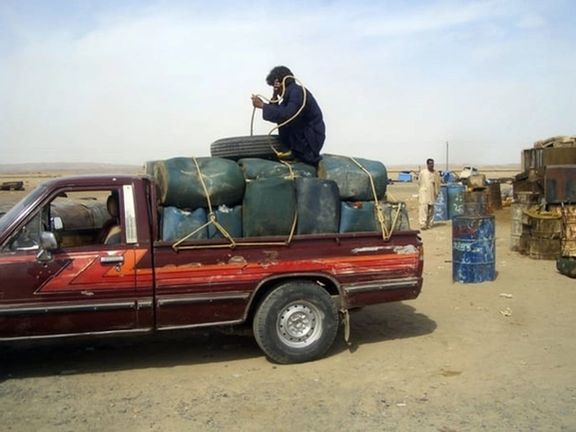
Pakistan has passed a special order to allow barter trade with Afghanistan, Iran and Russia for certain goods, including oil and gas, the Ministry of Commerce said Friday.
Left with barely enough foreign exchange reserves to cover one month's imports, Pakistan's government is desperately trying to manage a balance of payments crisis and bring inflation under control after it hit a record of nearly 38% last month.
The government order, called the Business-to-business (B2B) Barter Trade Mechanism 2023 and dated June 1, lists goods that can be bartered. State and privately owned entities would need approval to participate in the trade mechanism.
Although the United States has designated third-party sanctions on those buying Iranian oil, a barter deal might be overlooked by Washington. China buys large quantities of illicit Iranian crude exports with little push-back by Washington.
After Pakistan's first purchase of discounted Russian oil in April, petroleum minister Musadik Malik told Reuters that Pakistan would only be buying crude, not refined products under the deal.
There was no confirmation about how the payment would be made. But Malik said purchases could rise to 100,000 barrels per day (bpd) if the first transaction went smoothly.
Last year, Pakistan imported 154,000 bpd of crude oil, little changed from 2021, data from analytics firm Kpler showed.
In May, Pakistan Petroleum Dealers Association complained that up to 35% of the diesel sold in Pakistan had been smuggled from Iran.
Pakistan's government has also ordered a clamp down on smuggling of flour, wheat, sugar, and fertilizer to Afghanistan.
Report by Reuters
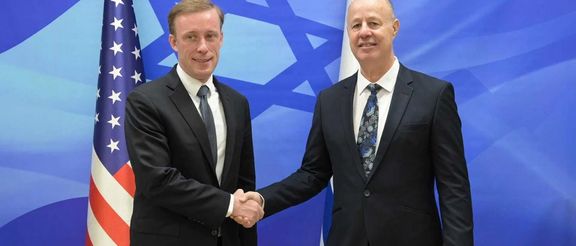
Top US and Israeli national security officials met in Washington Thursday and discussed “enhanced coordination” to prevent Iran from acquiring a nuclear weapon.
Assistant to the President for National Security Affairs Jake Sullivan hosted Israeli National Security Advisor Tzachi Hanegbi and Minister of Strategic Affairs Ron Dermer at the White House to continue high-level discussions following up on the March US-Israeli Strategic Consultative group that had focused on Iran’s nuclear program and “ways to counter threats from Iran and its proxies.”
The meeting followed reports and speculations in recent days that Washington was discussing some possible deals with Iran to secure the freedom of American hostages in Tehran in exchange for expediting the release of Iranian funds frozen in South Korea and Iraq.
A State Department official Thursday told Iran International that US policy has not changed in regard with Iran’s nuclear program and President Joe Biden is “fully committed” not to ever allow Iran to acquire nuclear weapons. The official said that the United States “in full coordination with its allies and partners” is preparing all options to deal with Iran’s nuclear program.
However, the spokesperson reiterated that the administration continues to believe in diplomacy as the best way to achieve this goal, although talks to revive the JCPOA accord are not on Washington’s agenda.
However, the state of US-Israeli relations might not be so clear. Israel’s Channel 13 television reported that US Secretary of State Antony Blinken has called off a planned visit to Israel next week amid tensions between Jerusalem and Washington over Iran.
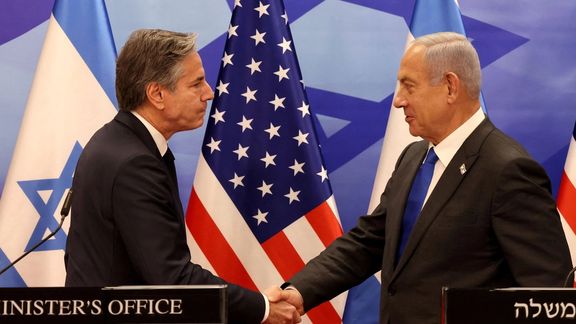
At the same time, Blinken after a meeting with British, French and German foreign ministers tweeted that “I also underscored U.S. concerns about Iran’s nuclear escalation.”
Israeli Prime Minister Benjamin Netanyahu separately in a video message said, "I have heard all of the reports about Iran. I have a sharp and clear message for both Iran and the international community: Israel will do whatever it needs to do to prevent Iran from obtaining nuclear weapons."
Clearly, Israel is demanding tougher responses to continued Iranian nuclear build-up. Whether Jerusalem is insisting on a military attack at this point is not clear, but tougher diplomatic and economic measures are certainly among its demands from Washington.
UN’s nuclear watchdog, the International Atomic Energy Agency, IAEA, issued a report to its members states this week that reportedly said Iran now has 114 kilograms of uranium enriched to up to 60-percent – an increase of 26.6 kg from the previous quarter. This can be easily further enriched to 90-percent purity needed for nuclear weapons in around two weeks.
The IAEA also reported that Iran has shown some flexibility regarding the Agency’s demands. This could be an effort by Tehran to forestall censure at the IAEA board meeting this month. One of Israel’s demands might be a strong condemnation of the Islamic Republic by the board.
About 42 kg of uranium enriched to 60-percent is what the IAEA calls a "significant quantity", defined as "the approximate amount of nuclear material for which the possibility of manufacturing a nuclear explosive device cannot be excluded".
Although Washington says there is no evidence that Iran has decided to proceed and build a weapon, in testimony to Congress in March, Gen. Marky Milley, chairman of the Joint Chiefs of staff, warned that Tehran could “field” a bomb in several weeks, if it made the crucial decision.